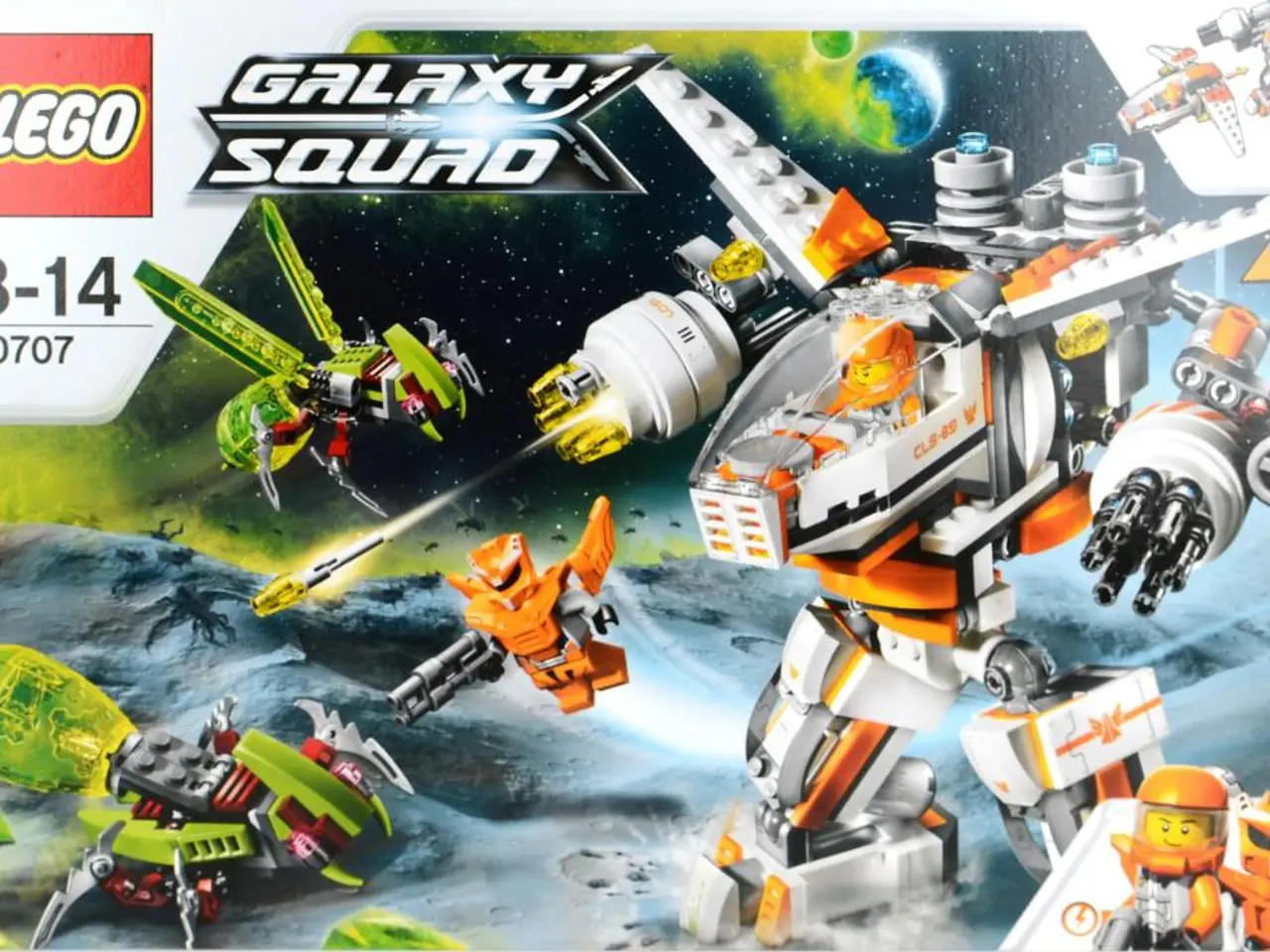Unidentified musical group creating a buzz on Spotify, with no record label to disclose their origin
In the rapidly evolving world of music streaming, one platform is taking a bold step towards transparency: Deezer. The French-based streaming service has become the first major platform to introduce an AI tagging system for music, aiming to clearly label albums and tracks containing AI-generated content [1][2][3][4].
This move comes in response to a surge in AI music uploads, with over 20,000 such tracks flooding Deezer's platform daily. In April alone, bot-made audio accounted for 18% of the total uploaded content, nearly double the 10% figure the company shared in January [1].
Deezer's AI tagging system is designed to help listeners distinguish between human-created and AI-generated content, while protecting real artists’ earnings and rights amid evolving copyright challenges. The platform blocks fraudulent streams from generating royalties if they are part of stream manipulation and excludes them from editorial playlists and algorithm recommendations [1][2][3][4].
While other music streaming platforms, including Apple Music, Amazon Music, and Tidal, have remained virtually mute on the topic of AI-generated music, Deezer is leading the charge [1]. This proactive approach is likely due to the scale and nature of the problem Deezer faces, as well as the company's commitment to artist rights and its willingness to lead transparency efforts [1].
One example of a band that has raised suspicions among some Reddit users is The Velvet Sundown. The indie rock band has gained popularity on Spotify, attracting 474,341 monthly listeners in under a month. The Velvet Sundown is also available on Apple Music and Amazon Music. However, some Reddit users have flagged The Velvet Sundown as potentially AI-generated due to signs such as an AI-generated profile picture, a bio with a purported Billboard quote, and band member images that look weird [1].
On Deezer, "Bones in the River," The Velvet Sundown's top track, is flagged as AI-generated and credited to László Tamaši, a Hungarian musician known for being the drummer of Honky Crew. László Tamaši is a rare example of an AI-generated artist being credited by name [1].
Deezer's CEO, Alexis Lanternier, believes in a responsible and transparent approach to AI-generated music to build trust with users and the music industry. This stance contrasts with some AI firms, such as Suno and Udio, who claim that training their models on copyrighted music falls under "fair use" [1].
Last year, a group of US record labels sued Suno and Udio, alleging copyright infringement on a "massive scale" [1]. Deezer is committed to safeguarding the rights of artists and songwriters at a time when copyright law is being questioned in favor of training AI models.
As the music industry grapples with the rise of AI-generated music, Deezer's proactive labeling reflects a strategic commitment to transparency and artist protection in response to a fast-growing AI content challenge. While consensus across the industry is still forming, Deezer's approach underscores the importance of transparency and artist protection in this new frontier of music creation [1][2][3][4].
| Aspect | Deezer's Approach | Other Platforms | |----------------------|---------------------------------------------------|-------------------------------------------------| | Labeling | Clear AI-generated content tags on albums/tracks | Mostly no clear labeling or less transparent | | Fraud Prevention | Blocks fraudulent streams from generating royalties| Varies; often less explicit about handling AI fraud | | Transparency | Promotes user awareness of AI content | Some less focused on user notification | | Industry Positioning | Smaller but proactive leader in AI transparency | Larger players more cautious or silent |
[1] The Verge (2021) Deezer becomes the first music streaming service to tag AI-generated content. [online] Available at: https://www.theverge.com/2021/5/13/22436247/deezer-ai-generated-music-artificial-intelligence-streaming-royalties
[2] Music Business Worldwide (2021) Deezer introduces AI-tagging system for music streaming. [online] Available at: https://www.musicbusinessworldwide.com/deezer-introduces-ai-tagging-system-for-music-streaming/
[3] NME (2021) Deezer becomes first music streaming service to tag AI-generated content. [online] Available at: https://www.nme.com/news/music/deezer-becomes-first-music-streaming-service-to-tag-ai-generated-content-3363988
[4] TechCrunch (2021) Deezer becomes the first music streaming service to tag AI-generated content. [online] Available at: https://techcrunch.com/2021/05/13/deezer-becomes-the-first-music-streaming-service-to-tag-ai-generated-content/
Deezer's AI tagging system in music streaming aims to identify and label albums and tracks containing artificial-intelligence-generated content, striving to protect the earnings and rights of real artists as they face copyright challenges.
In contrast, other major streaming platforms such as Apple Music, Amazon Music, and Tidal have remained relatively quiet about the topic of AI-generated music, leaving transparency and protection measures unclear.




